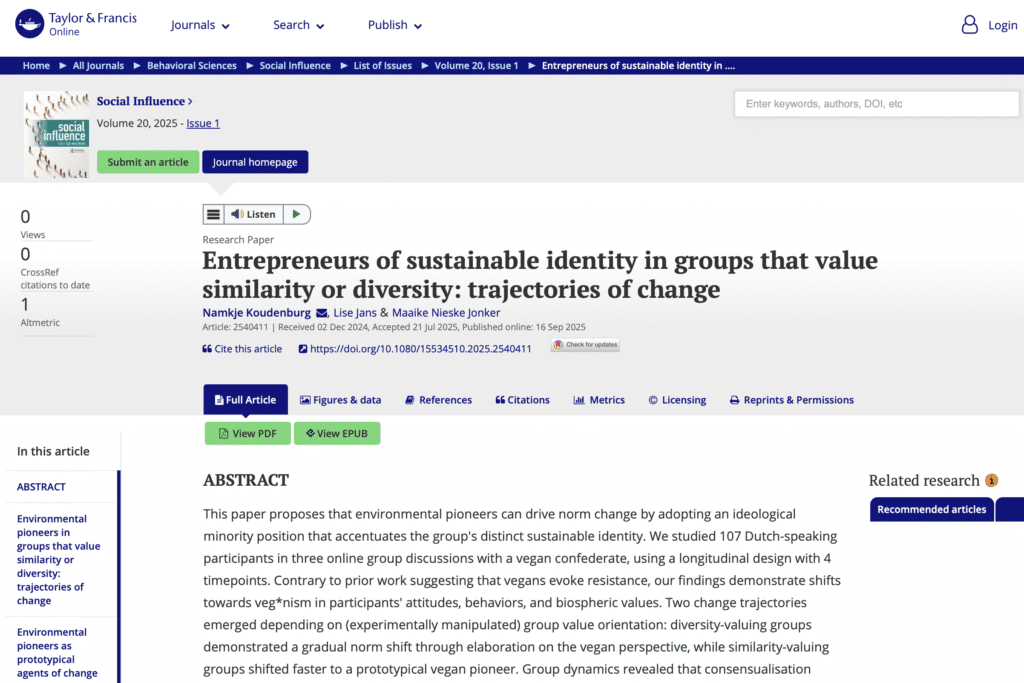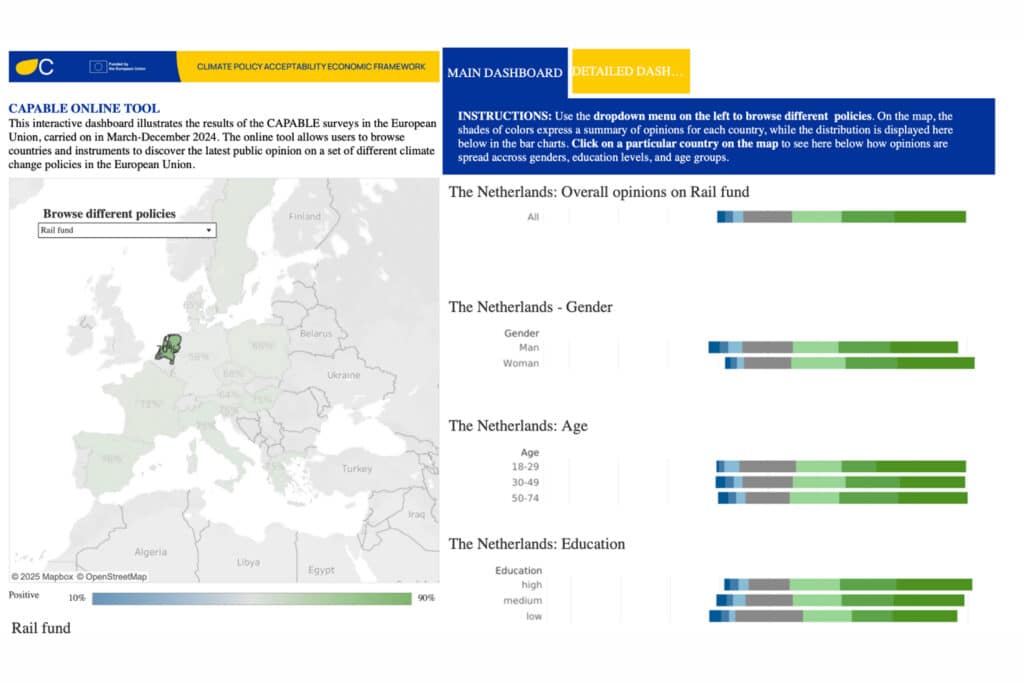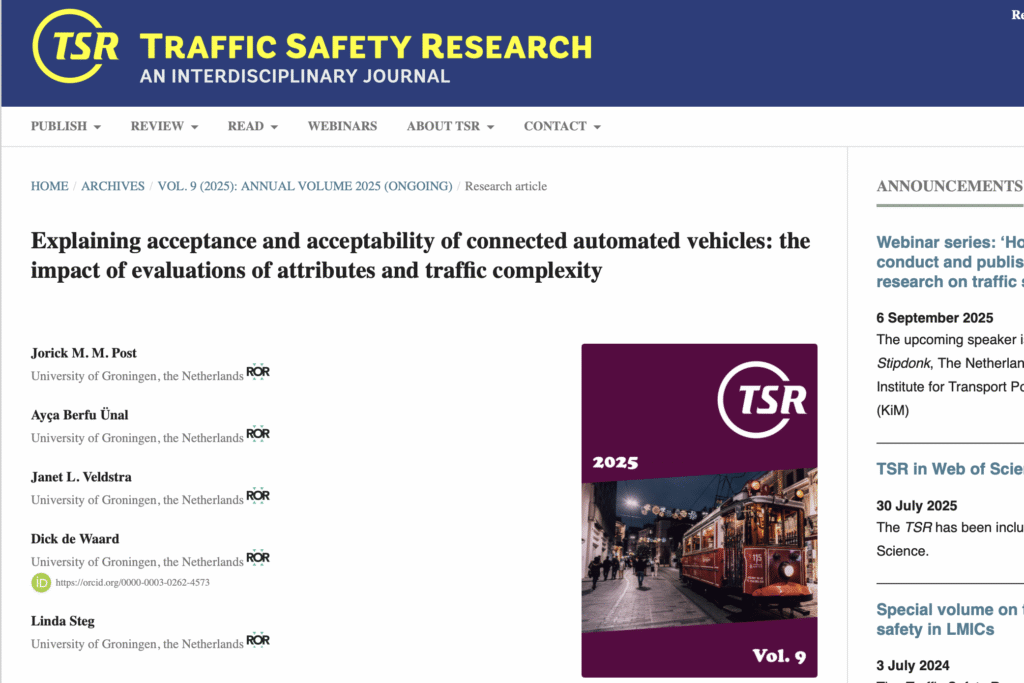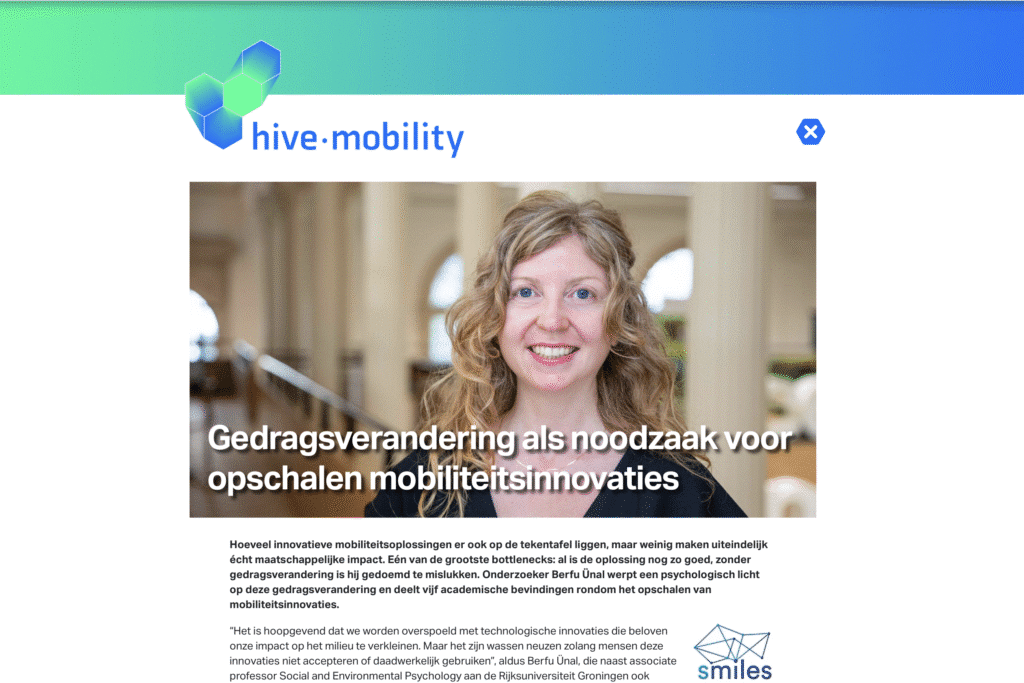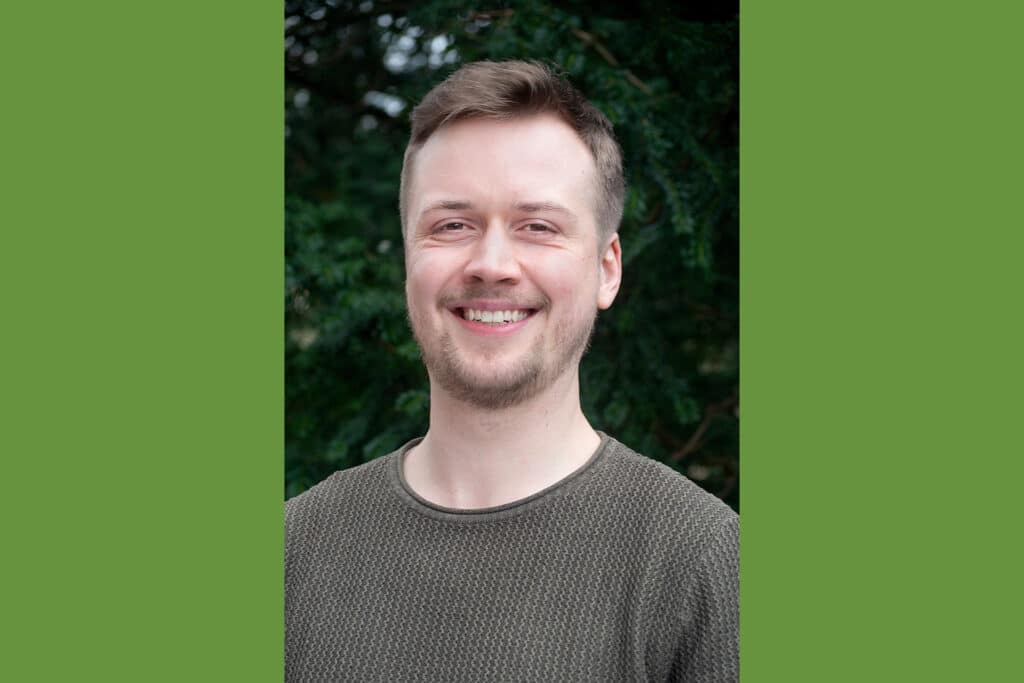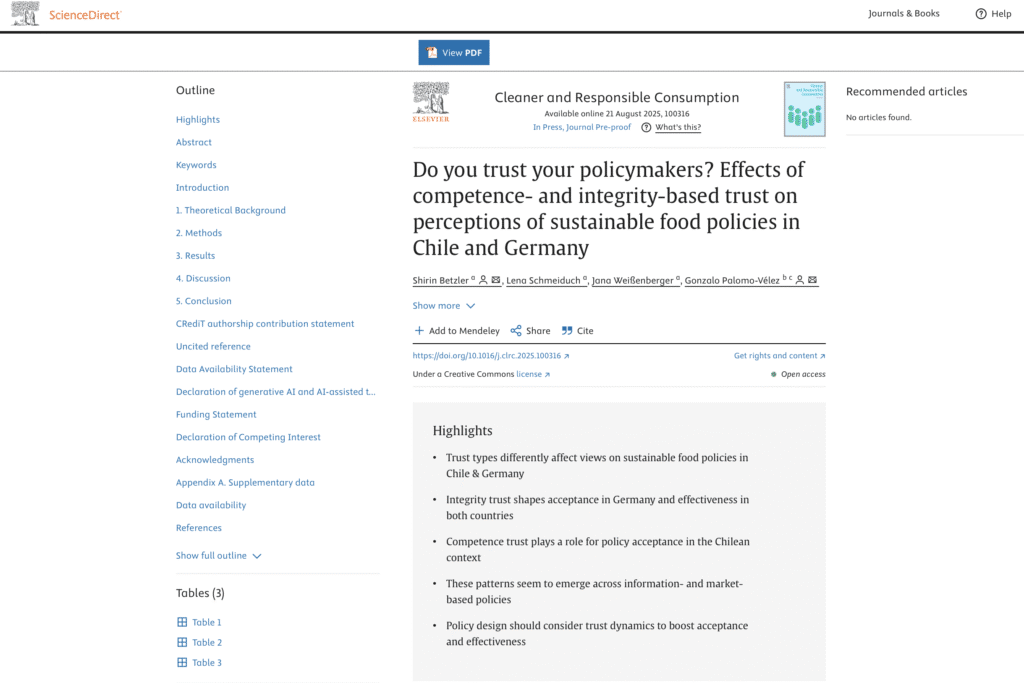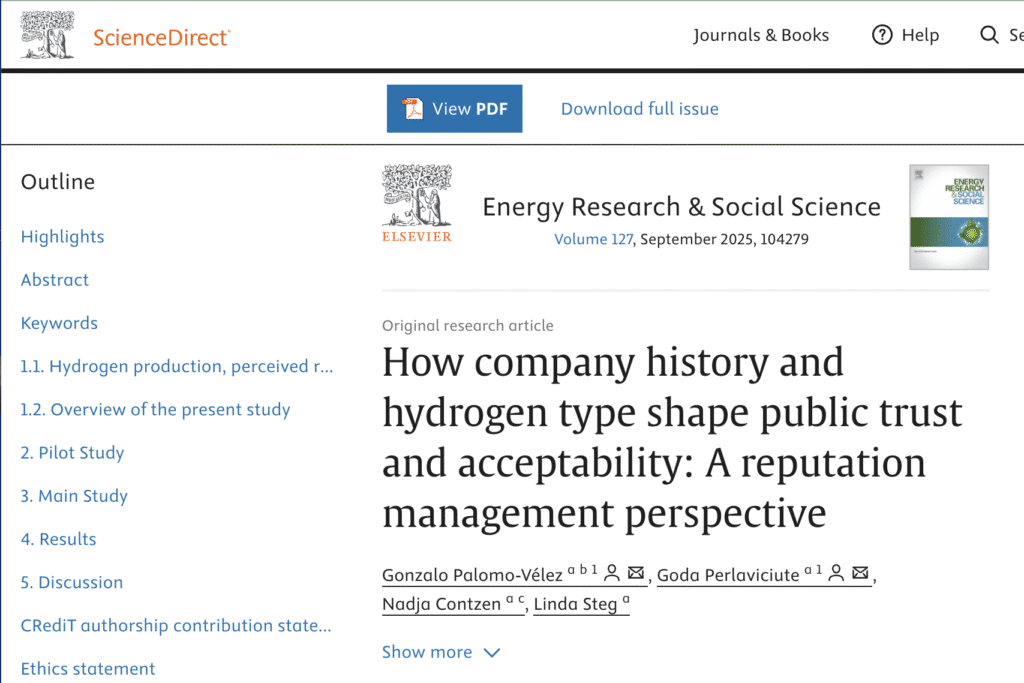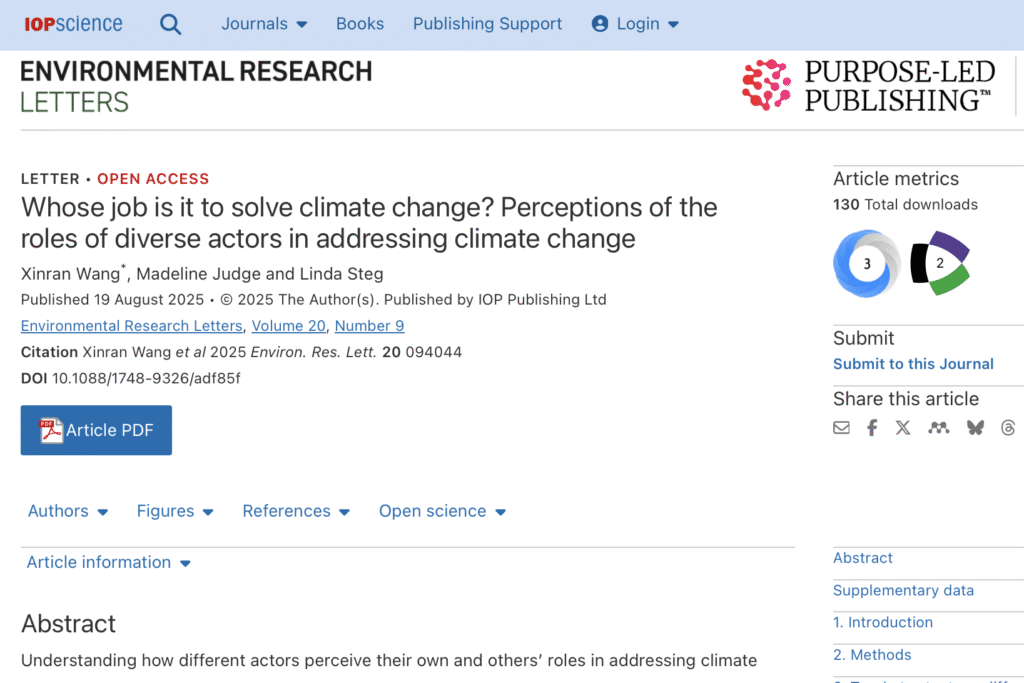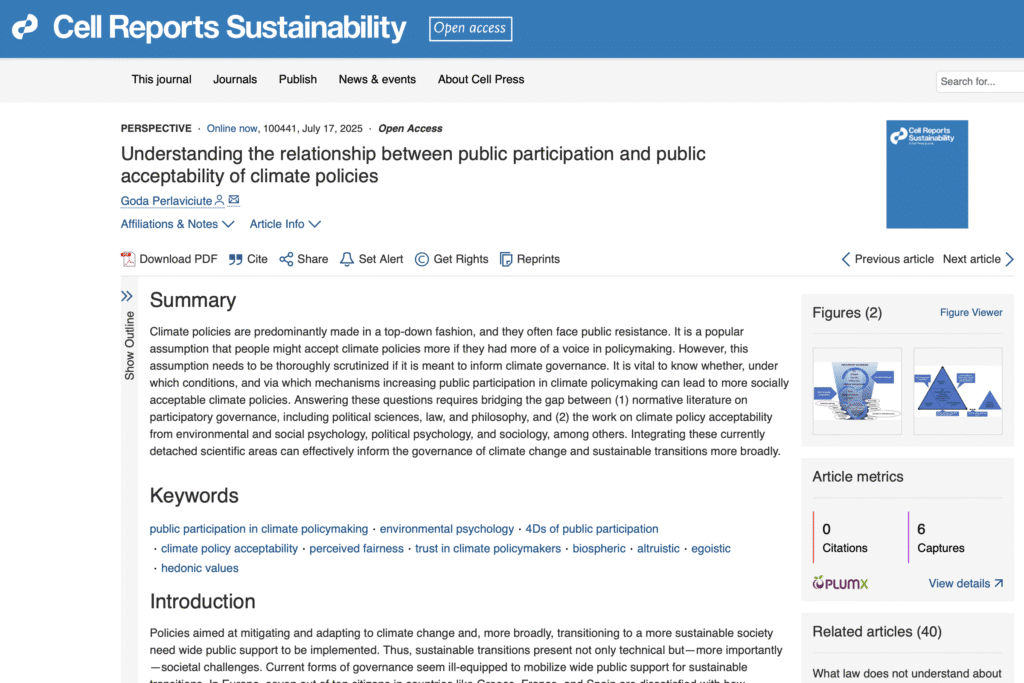Abstract
Talking about environmental issues with a variety of people is key in achieving pro-environmental change; it helps individuals learn how to act sustainably and understand others’ concerns, reveals support for climate policies; and can build momentum for large-scale change. Research, however, has shown that people often avoid discussing environmental issues in everyday conversations. What explains people’s reluctance to talk? Prior research has identified several social-psychological factors that may influence whether someone is willing to reach out to others about environmental issues, but has overlooked an important aspect: the conversation’s focus. Specifically, people’s willingness to talk may also depend on whether the conversation focuses on the need for individual-level change (e.g., reduced plastic usage by consumers) or on the need for system-level change (e.g., reduced plastic usage by producers). Using mixed methods, we find across three studies that people generally perceive talking about system-level changes as having a greater environmental impact, which makes them more likely to talk. Some also perceive conversations about individual-level changes as being socially risky, as bringing up individual responsibility may come across as implying moral judgment. Overall, when given a choice, respondents prefer to talk about system-level changes. However, a number of respondents also recognized individual-level change as integral to wider system-level change, viewing both types of change as interconnected and supportive, and therefore see the benefit in also discussing individual-level changes. Our research suggests that policy interventions should focus discussions on how individuals can drive systemic change, as this increases people’s willingness to talk.
Personal Actions or Systemic Solutions: How The Focus of the Conversation Influences Willingness to Talk about Environmental Issues
Tabea Hoffmann, Žan Mlakar, Ward Rauws, Jan Willem Bolderdijk
Journal of Environmental Psychology
April 2025
https://doi.org/10.1016/j.jenvp.2025.102590
Tabea Hoffmann, Žan Mlakar, Ward Rauws, Jan Willem Bolderdijk

